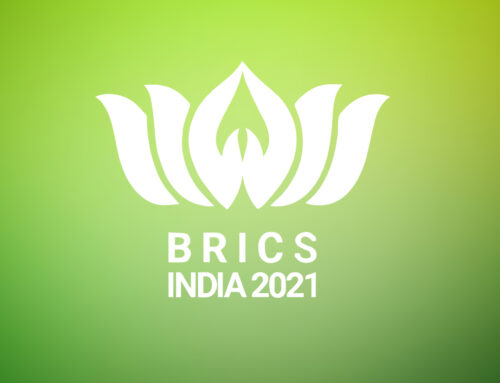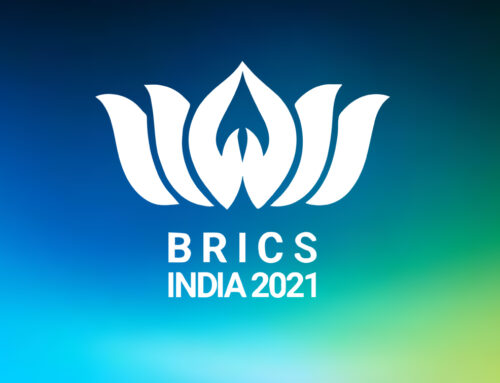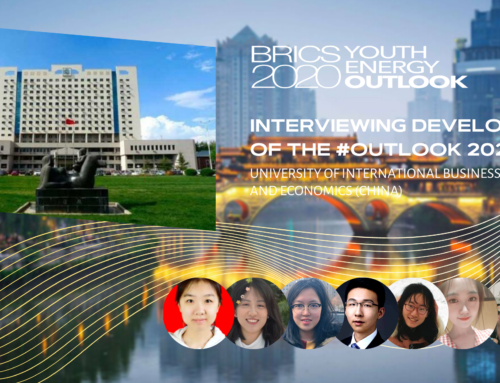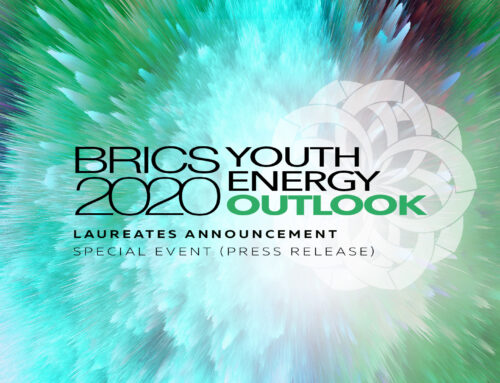We continue to introduce the BRICS Youth Energy Outlook 2020 Developers. Today we are pleased to introduce to you the team from Indian Institute of Technology (ISM), Dhanbad. The team consists of 5 curious students: Shubham Agarwal (leader of the group), Prithvi Chauhan, Debosmit Banerjee, Aman Kumar and Suyash Vatsa.
The Indian School of Mines was opened in 1926 by Lord Irwin, the then Viceroy of India to address the need for trained manpower related to mining activities in the country with disciplines of Mining and Applied Geology. In 1967 it was granted the status of university. Since its establishment, IIT(ISM) has undergone considerable expansion of its activities, and presently it can be considered as a total technology education institute.
Where and how did you meеt?
All five of us are from different parts of India, but our institution united us. We met for the first time during the Induction Program at our institute in August 2017.
What are your general interests?
Since we are all Petroleum Engineering undergraduates our common interests lie in the fields of Energy, Economics and Environment.
What projects have you already realized?
This is our first project in which all 5 of us are contributing together.
Which rules do you use for distribution of tasks between chambers and for prioritization?
We equally distributed the tasks among our team members, taking into account their personal interests. Before completing the final draft, we rotated our tasks to account for any mistakes done by others. We gave equal importance to all the parts.
In your opinion what’s the main principle that makes your teamwork successful?
Team spirit, co-operation, and discipline are the main principles behind the success of our teamwork.
What contribution to your team experience do you hope to get during your work on the BRICS YEA Outlook-2020?
Working remotely on BRICS Youth Energy Outlook-2020 due to the nationwide lockdown because of the global pandemic, was a challenge for the team in the beginning, but the goal was achieved. Our team gained valuable experience on remote working culture.
How did you know about the BRICS YEA and the BRICS Youth Energy Outlook-2020?
We came to know about the BRICS YEA through an email from our institution. Then we got to know about the BRICS YEA Outlook by further browsing through the BRICS YEA website.
In your opinion why is it beneficial for the youth from the BRICS countries to cooperate?
No sector of society can match the strength, idealism, enthusiasm, and courage of young people. People of this age have the openness and ability to deal with new information and communication technology (ICT). When inspired by innovation, youth can collaborate actively to produce positive social change.
How do you evaluate the role of the BRICS YEA in the achieving global sustainable development?
The BRICS YEA is a platform for young, enthusiastic researchers from the BRICS countries to exchange ideas and informational resources. Thus, the BRICS YEA plays a key role in achieving the Sustainable Development Goals reported in UN AGENDA 2030.
In your opinion what challenges the BRICS countries will be facing in the nearest future in the field of energy development? How can the youth face these challenges?
The environment can become a significant obstacle in achieving sustainable future economic growth in the energy sector. One of the primary challenges the BRICS countries may face in terms of implementing renewable energy strategies is the leveraging of finance. Besides, today’s youth seek a sustainable energy future, but they are not provided with a good entry point to learn about energy in detail.
Your chosen topic is related to the development of petrochemistry in the future. What would you like to place emphasis on during your work?
The Indian economy is heavily dependent on petrochemicals, but the industry receives far less attention than it deserves. India’s market is full of potential. The fact of the matter is petrochemical sector needs to be properly steered. Thankfully, it is gradually happening under the leadership of Prime Minister Narendra Modi.
In your opinion what is the most appropriate way of treating petrochemicals in India: prohibition of the use or recycling? Why?
When comparing to the complete prohibition of use, sustainable and innovative way of using any resource has always led to the best results in the past. The Petrochemicals are an integral part of our society. Taking into consideration economic and environmental issues and the difficulty in finding alternatives to Petrochemical products, we consider recycling to be the best way.
We appreciate the contribution of the team from the Indian Institute of Technology (ISM) to the BRICS Youth Energy Outlook-2020 and this interview!





